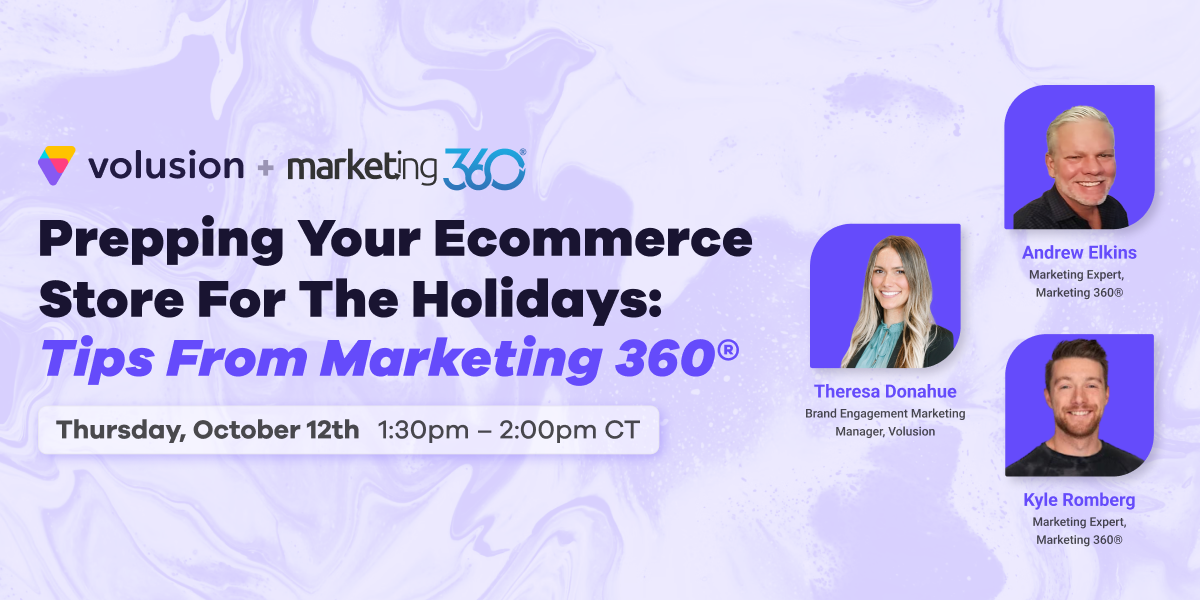
The first year of running your online business is the toughest. You’re often still figuring out whether your concept is viable, not to mention fine-tuning your marketing, branding, operations, recruiting, and sales tactics, along with every other aspect of running a successful company.
On top of all that, if you find any sort of traction with your ecommerce endeavor, you’ll likely need some kind of funding in order to scale. Personal savings tend to run out pretty quickly, and not everyone can lean on their personal network for donations or no-interest loans.
If you’re in the market for some kind of small business financing and your online business is still in its first year, here’s what you need to know.
What you need to know about funding a new online business
Funding a new online business isn’t much different than funding a traditional brick-and-mortar business. That’s both a good and bad thing.
The good part is that you don't need to jump through a ton of extra hoops just because you operate online. The bad part is that there are few affordable funding options for businesses that have been in operation for a year or less, regardless of whether you need to rent or buy an expansive physical location or you’re just working from your home computer.
Options exist—they’re just limited, and competitive. The first step, therefore, towards acquiring affordable new business financing is preparing your business for the application process.
How to prepare to apply for funding
Because your business is so new, you’re unlikely to qualify for a traditional bank loan. Those loans are typically reserved for larger, more established businesses.
But regardless of whether you’re looking for a loan through the Small Business Administration, a line of credit through an online lender, a grant from a nonprofit, or any of the other options we’ll discuss below, it’s a good idea to get your documents and finances in order.
Different lenders have different business loan requirements, but many of them will want to see the following:
- A business plan: You should already have a business plan that outlines your company’s objectives and goals and how you plan to achieve them. Some lenders will want to see a business plan that includes an explanation of how you’ll repay them.
- Separate business and personal finances: If you want to start building business credit (more on that in a minute) and for lenders to see your business as legitimate, it’s time to open up separate business bank accounts, get a business credit card, and stop running your online business’ finances through your personal accounts.
- Financial documents for your business: This includes bank statements, balance sheets, business and personal tax returns, and disclosures of other debt. What you’ll need exactly depends on the lender.
- Collateral: Most business loans ask you to put up some kind of personal collateral to “secure” the loan in case you default.
- Good credit scores: Good personal credit opens up the doors to affordable business financing. You can and should also start building your business credit score as well.
Again: Even if you don’t go the official lender route (i.e., you use crowdfunding, or hit up friends for a loan), it’s good to have these things in order. Legal and financial help through a lawyer and/or accountant is advised.
Your best online business funding options
So you’ve got your financial ducks in a row, and you’re ready to acquire some funding. Where do you even start?
Here’s a roundup of the best funding options for your new online business:
SBA Microloan
New small business owners seeking funding should always look into whether they qualify for an SBA Microloan. The Small Business Administration’s loan programs offer low-interest loans with long repayment terms, and their Microloan program—where SBA funds are distributed through intermediary, nonprofit lenders—is geared toward new business owners. These loans can be anywhere from $500 to $50,000, with repayment terms up to six years.
Microloans from nonprofit lenders
There are other microloans that you may qualify for outside of the SBA’s Microloan program. Microlending institutions such as Accion USA, PayPal Working Capital, and Kiva all offer varying amounts of startup funding to qualifying business owners.
Online lenders
In the wake of the 2008 recession, a new class of online lenders emerged as banks receded from lending. These lenders offer quick underwriting periods, which means they aren’t as stringent with their minimum requirements. It also means their loans are often more expensive—but that’s the price you pay for fast capital.
Some online lenders only have a minimum time in business of three, six, or nine months, (that’s Fundbox, BlueVine, and PayPal, respectively) meaning once you reach those benchmarks, you may be eligible for a loan from them.
Business credit cards
It’s worth mentioning that a good business credit card can work as an excellent source of short-term financing. If your personal finances are strong enough, you may qualify for a business credit card with a 0% introductory APR—which means no interest payments over the life of the offer provided you pay minimum balances.
You can use tools like this to finance big purchases without accruing interest. Just know that after the introductory period, a variable APR rate will set in according to your creditworthiness and the prime Market Rate, so you’ll want to check with your issuer about their terms.
Personal loans
If you have no business history at all and need some funding right away, a personal loan isn’t a bad alternative. These loans typically have lower interest rates than business loans, and can be good for tens of thousands of dollars in startup financing.
Keep in mind that you’ll be personally liable if you can’t pay back the loan.
Crowdfunding
Platforms like Kickstarter and GoFundMe have become mainstream financing options for small business owners. The downsides to creating a crowdfunding campaign and giving it a shot are minimal, and the opportunity to bypass traditional lending institutions while still receiving the exact amount of funding you need is compelling.
Remember, however, that crowdfunding is not a sure thing: According to Statista, Kickstarter campaigns are successfully funded just 37% of the time.
Grants
Winning a small business grant is difficult due to the competition, but possible—and if there’s a possibility of free money for your online business, you should look into it. A ton of niche grants may apply to your specific situation, or you can apply to federal government grants if your business is in the right industry.
The bottom line on first year financing
Your first year of acquiring financing for your new business endeavor is always the hardest. Once business picks up steam and you’ve been in the game for long enough, more affordable options begin to come your way.
The options above, however, are varying degrees of affordable, provided you have a proven business model that generates a solid profit. If you don’t have that quite yet, it’s time to go back to the drawing board until you have something that works. Funding can be a springboard to success as well as an anchor that drags you down, so do your due diligence to ensure it’s the former before you begin.











